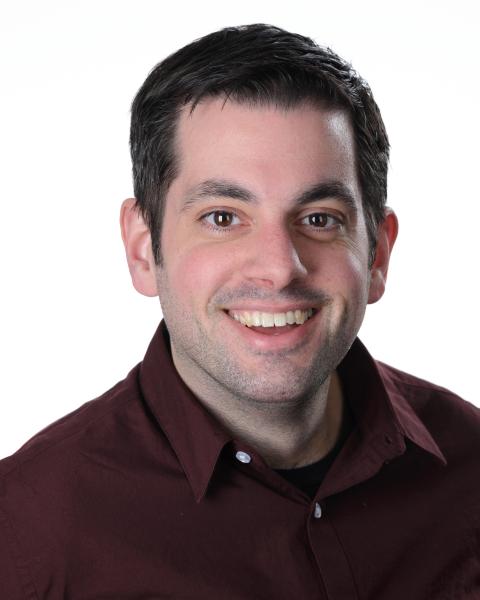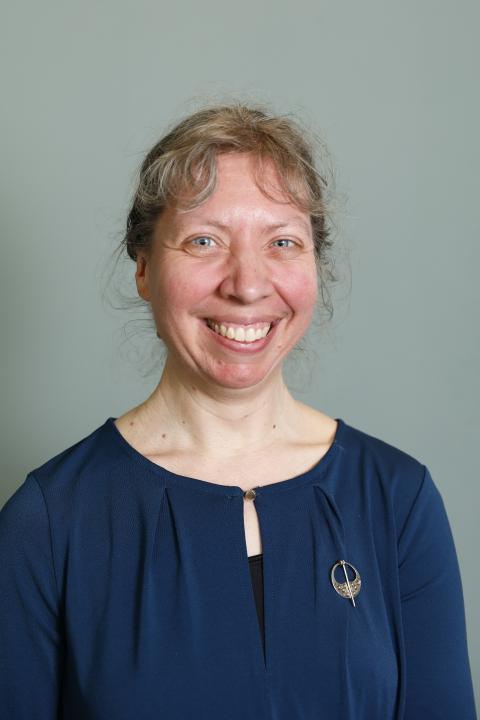Neglected values
Europe is a community of values that has traditionally been united by democracy, equality (before the law) and solidarity. The recent European Values Study, spearheaded by researchers at Tilburg University, reveals that we still consider these values to be of utmost importance. But they are now under more pressure than ever before. The war in Ukraine is forcing us to take a close look at ourselves. “What we do now could shape a whole generation.”
These have not been good years for advocates of European cooperation. The euro crisis in 2009 placed solidarity between the northern and southern countries under severe pressure. Tensions then emerged between western and eastern member states of the European Union relating to all kinds of ‘western’ freedoms. Add Brexit to the mix and only one conclusion seemed possible: Europe is less united than ever.
This lack of European unity suddenly came to a halt after Russia unleashed a brutal war in Ukraine. European countries joined forces to resist a common enemy. East, west, north and south were united in their abhorrence of Russian President Vladimir Putin’s aggression. “Europe was disjointed, but is now starting to operate as a world power,” argued Europe expert and author Geert Mak in the TV opinion program M. He even went as far as to say that Ukraine had become a western nation in the space of a few days. President of the European Commission Ursula Von der Leyen reached out to embrace the country attacked by Russia. “You are one of us. You are defending our values.”
European Values Study
The unity in both Europe and Ukraine probably came as quite a shock to Putin. Via social media and by other means, the Russian president has been sowing division in Europe for years, for example by fueling anti-European and extreme-right sentiments. Putin knows all too well what divides the west and east of Europe. This is why, for example, he makes no attempt to hide his disgust for ‘gender freedoms’.
The fact that the east and west disagree on this is no secret. It has also been confirmed by the most recent European Values Study (EVS). The director of this research program, sociologist Tim Reeskens from Tilburg University, points to the differences between western and eastern European countries in terms of what are referred to as ‘values of self-expression’. Views on the issue of homosexuality are particularly divided, as is revealed by data collected in various European countries by the EVS. In the Netherlands, for example, tolerance of homosexuality is ranked 8.6 on a scale of 1 to 10. These figures are significantly lower in Eastern European countries, such as Russia (2.5), Ukraine (2.6) and Poland (4.0). Putin is exploiting these differences to justify his invasion.

What makes Europe vulnerable is not so much a lack of awareness of what values are important. (..) The problem has more to do with the fact that we are falling short in fulfilling our values
Tim Reeskens - Director research program EVS and sociologist at Tilburg University
The Russian leader claims that Ukraine has more in common with Russia than countries in Western Europe. Although Putin may be making every effort to convince us of the fundamental importance of such differences, one might wonder whether it is enough to constitute a fundamental division between east and west. After all, Eastern European countries feel a clear affinity with Europe, as the EVS also shows. Even before the war, Ukraine had a relatively high level of trust in the European Union (2.4 on a scale of 1 to 4), and a relatively strong sense of connection with Europe. These figures have only increased in response to Putin’s aggression.
Even on the importance of democracy, the EVS reveals no huge differences in Europe. In answer to the question of whether it is important to live in a democracy, the Ukrainians gave a score of 8.25 (in 2020, on a scale of 1 to 10). Even the Russians acknowledge its importance. They gave it 7.3 in 2017.
Erosion of democracy
What makes Europe vulnerable is not so much a lack of awareness of what values are important. We have a good idea of what it is that unites us. According to Reeskens, the European Union not only aspires to be an economic community, but also a community of values. “We are talking such long-standing values as democracy, equality (before the law) and solidarity.”
The problem has more to do with the fact that we are falling short in fulfilling our values, at least according to a growing section of the population. In western countries, democracy is under pressure and inequality is increasing. The storming of the Capitol was a warning sign, argues Paul Sinning, Executive Director of The Hague Center for Strategic Studies (HCSS) and alumnus of Tilburg University. “American democracy was teetering on the edge of the abyss. Donald Trump was close to having his way. The fact that he didn’t is down to a few individuals with a backbone.”
Sinning has concerns about the world’s oldest democracy being ‘eroded’. He is equally worried about the waning trust in institutions, such as politics, journalism and an independent judiciary in Europe. The public mood is increasingly turning against these institutions. “This could be worsened still further by an economic recession, for example as a result of increasing inflation. There is a risk that the middle classes will become disengaged, undermining cohesion in society.” In Sinning’s view, the US has almost reached this stage. “There has been too much economic inequality for years. In 2015, it even resulted in a fall in life expectancy.”
Values and economics are inextricably linked
Paul Sinning - Executive Director of The Hague Center for Strategic Studies (HCSS) and alumnus of Tilburg University
Sinning argues that the fair distribution of wealth is an essential ingredient in any sustainable democracy and the rule of law. “Values and economics are inextricably linked.” If economic inequality increases too much, people can end up pressing the self-destruct button: if I can’t get it, no one else will. To some extent, that’s what happened with Brexit. Sinning also believes that the declining trust in politics could even become a problem in the Netherlands, a country founded on equal relationships. “In the Netherlands, I think we also need to take a good look at how wealth is distributed. Confidence in politics is declining here too. Parties are becoming hugely fragmented and there are major regional differences. This is eating into the center ground, undermining efforts to maintain stability and continuity. If it becomes too fragmented, you have a major problem.”
Photo: demonstration in Latvia. Text continues below the photo

Decadence trap
Blaming Putin for everything is too easy. The current situation also forces us to take a close look at ourselves and the way we approach our European values. We need to ask ourselves whether we have sufficiently invested in these values. At the very least, we have double standards. While we preach democracy, equality and other human rights, we are still willing to turn to regimes that take a more casual approach to such things, buying cheap gas from Russia or low-cost goods from China. We are quite happy to be decent, providing it does not cost us anything.
In his book entitled Van muur, tot muur. De wereldpolitiek sinds 1989 /World Politics since 1989, Jonathan Holslag, a colleague of Sinning at HCSS, draws attention to these double standards. According to the professor of International Economics at Vrije Universiteit Brussel, we focus too much on short-term advantage and material wealth. He even refers to what he calls a ‘decadence trap’. “Rather than maintaining domestic prosperity by setting up an increasingly advanced and sustainable industry, major western markets have been engaging in irresponsible expenditure on imported raw materials and consumer products. (…) Consumerism and speculation have thrived at the expense of public spirit and enterprise.”
If we want Europe to maintain its current excellent position, our market needs to become more reflective of our values again
Jonathan Holslag - Colleague of Sinning at HCSS
In Holslag’s view, we focus too much on short-term consumption and fail to invest sufficiently in things that do not deliver results immediately, such as values and security. He believes that this needs to change. “If we want Europe to maintain its current excellent position, our market needs to become more reflective of our values again,” the Belgian professor warns in the Dutch newspaper De Volkskrant. “The way in which you earn money should contribute to a better, stronger more humane society. That’s something we have severely neglected in the last thirty years.” He believes that we need to focus more on the advantages offered by a society that is not based on fear, obedience and control but on mutual trust, ingenuity and sharing.
Authoritarian reflex
With his war in Ukraine, Putin has given us a lesson in solidarity. We have proved willing to take in refugees without complaining. What helps in this, according to Tilburg sociologist Inge Sieben, also affiliated with the EVS, is that Ukrainian refugees of war rate highly in terms of most of the criteria for solidarity. “We tend to show more solidarity toward people affected by something terrible that they cannot do anything about. You also see solidarity toward people with a grateful attitude. Other key criteria include the need for help and the extent to which we can identify with the other person. Ukrainian refugees also meet those criteria.”

What’s happening now shows us how important certain values are
Inge Sieben - Sociologist at Tilburg University and also affiliated with the EVS
Sieben hopes that the war will open up our eyes to the importance of mutual solidarity. “What’s happening now shows us how important certain values are. We need to stick to them.” But that does not automatically mean that our actions will reflect that, she thinks. “The war shows how important democracy is, but turnout at the local council elections was lower than ever.”
Sieben’s colleague Reeskens believes that we are at a decisive moment in history: “What we are about to do in Europe really matters. Uncertainty, caused by war and pandemic, for example, can trigger a conservative, materialistic and authoritarian reflex. The risk is that people will opt for a strong and bold leader rather than for Parliament.” It would be a shame if young people were to turn their backs on democracy. “Values are shaped at an early age and remain relatively stable over the years. What we do now could shape a whole generation.”
European Values Study
The European Values Study (EVS) is a large-scale, cross-national, and longitudinal survey research program on European values. It uses representative survey data to provide an insight into European people’s values and opinions across multiple domains: family, employment and leisure, religion, morality, identity, solidarity, politics and society. The first collection of data took place in 1981 and the study has been repeated in an increasing number of countries every nine years since then. No fewer than 36 countries in Europe, both within and outside the EU, participated in the most recent study, in 2017. As well as featuring in many academic publications, the results of the European Values Study are also available for a wider public in the form of attractive maps and graphs. A new edition of the associated Atlas of European Values was presented in Brussels on 9 May (Europe Day) at the European Values Conference, which also marked the launch of the Jean Monnet Centre of Excellence of European Values (CoEV) at Tilburg University (www.tilburguniversity.edu/collaboration/coev).
Further information can be found at: www.europeanvaluesstudy.eu.
Date of publication: 16 May 2022
